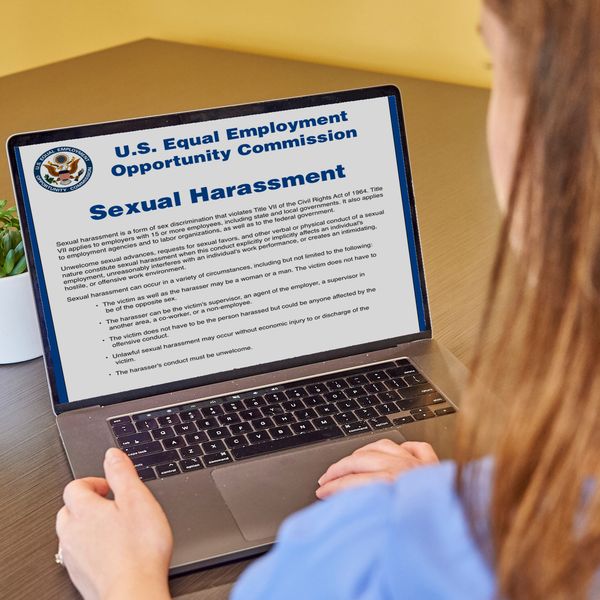What not to say if an employee shares that they are transgender
If an employee asks to speak with you one day, and shares that they are transgender, you may not know what to say.
Two lawsuits filed against employers in September by the U.S. Equal Employment Opportunity Commission (EEOC), however, make it clear what you should NOT say or do.
The pizza lawsuit
The EEOC filed the first lawsuit against a company that operates pizza restaurants claiming it retaliated against an employee who objected to workplace harassment.
According to the suit, the pizza restaurant fired an employee who complained about harassment. The employee, who is transgender, told the company that she believed a manager had outed her to other employees. As a result, coworkers misgendered her, prompting a customer to make an offensive comment using both an LGBTQ+ and a racial slur. When the employee reported these incidents, a manager took the employee’s badge, which was the same as firing her, because it prevented her from returning to work.
The EEOC filed suit in the U.S. District Court for the Northern District of Illinois after first trying to reach a pre-litigation settlement through its conciliation process. The EEOC’s suit seeks monetary relief for the employee and injunctive relief intended to prevent the employer from engaging in retaliation in the future.
The hotel lawsuit
The second lawsuit involves a hotel chain. The EEOC charges that a hotel violated federal law when they fired a transgender housekeeper the day after the housekeeper complained that a supervisor repeatedly misgendered them and made anti-transgender statements.
According to the lawsuit, during a transgender housekeeper’s first day of work their supervisor:
- Referred to them as a “transformer,”
- Made multiple offensive comments about being transgender, and
- Misgendered the housekeeper or referred to them as “it” repeatedly.
The housekeeper made complaints to local managers and the corporate office, but instead of stopping the unlawful conduct, management suggested the job might not be a good fit and told the housekeeper their services were no longer needed.
The EEOC filed suit in the U.S. District Court for the Western District of New York after first trying to reach a pre-litigation settlement through its administrative conciliation process.
Why the EEOC filed these lawsuits
The alleged conduct of the hotel and pizza chain violated Title VII of the Civil Rights Act of 1964, which the EEOC enforces. The law prohibits employers from discriminating against employees based on their sex, which includes transgender status. Title VII also prohibits retaliation against employees who object to discrimination.
What an employer should say to create an inclusive work environment
When an employee comes out as transgender, an employer should:
- Acknowledge: Tell the employee that you know sharing their transition was difficult and that their trust is appreciated.
- Listen: Don't push for information that they don’t offer. Remember that you don't need to know everything about their identity to respect it.
- Plan: Work with the employee to learn their name and pronoun preferences and when they would like to use them in the workplace.
- Review and update policies: Make sure all company policies are gender neutral.
- Educate: Work with the employee to create a plan for educating the team and leadership if this would be helpful.
- Get it right: Refer to the employee by their preferred name and pronouns. Make the effort to use the correct name every time and apologize if you occasionally make a mistake.
Other things to keep in mind:
It’s important to never make assumptions about an employee’s gender or their plans to transition. Employers cannot:
- Require employees to use the bathroom that aligns with their gender assigned at birth.
- Demand medical or legal documentation of an employee’s gender as a condition of restroom access.
- Fire an employee for coming out as transgender.
The EEOC has said that using the wrong name and pronouns to refer to a transgender employee could contribute to an unlawful hostile work environment. The use of the wrong name or pronouns, however, must be done intentionally and repeatedly when referring to a transgender employee to rise to that level.
The agency has clarified that accidental misuse of a transgender employee’s name or pronouns does not violate Title VII.
Key to remember: To avoid lawsuits and create an inclusive workplace, employers should learn what to say, and what not to say, when an employee shares that they are transgender.






















































